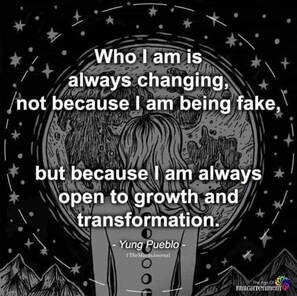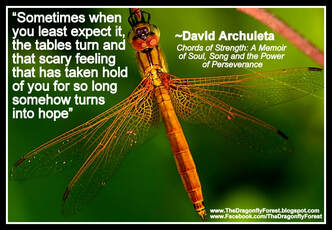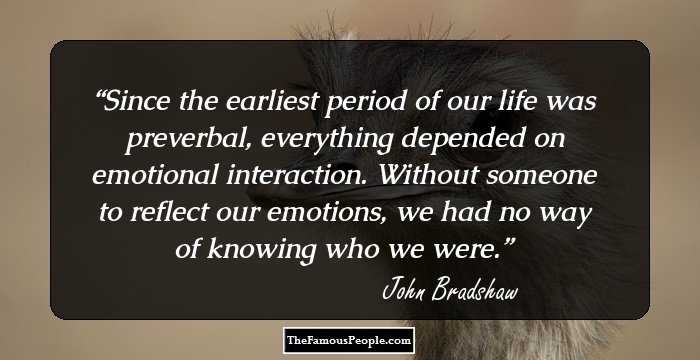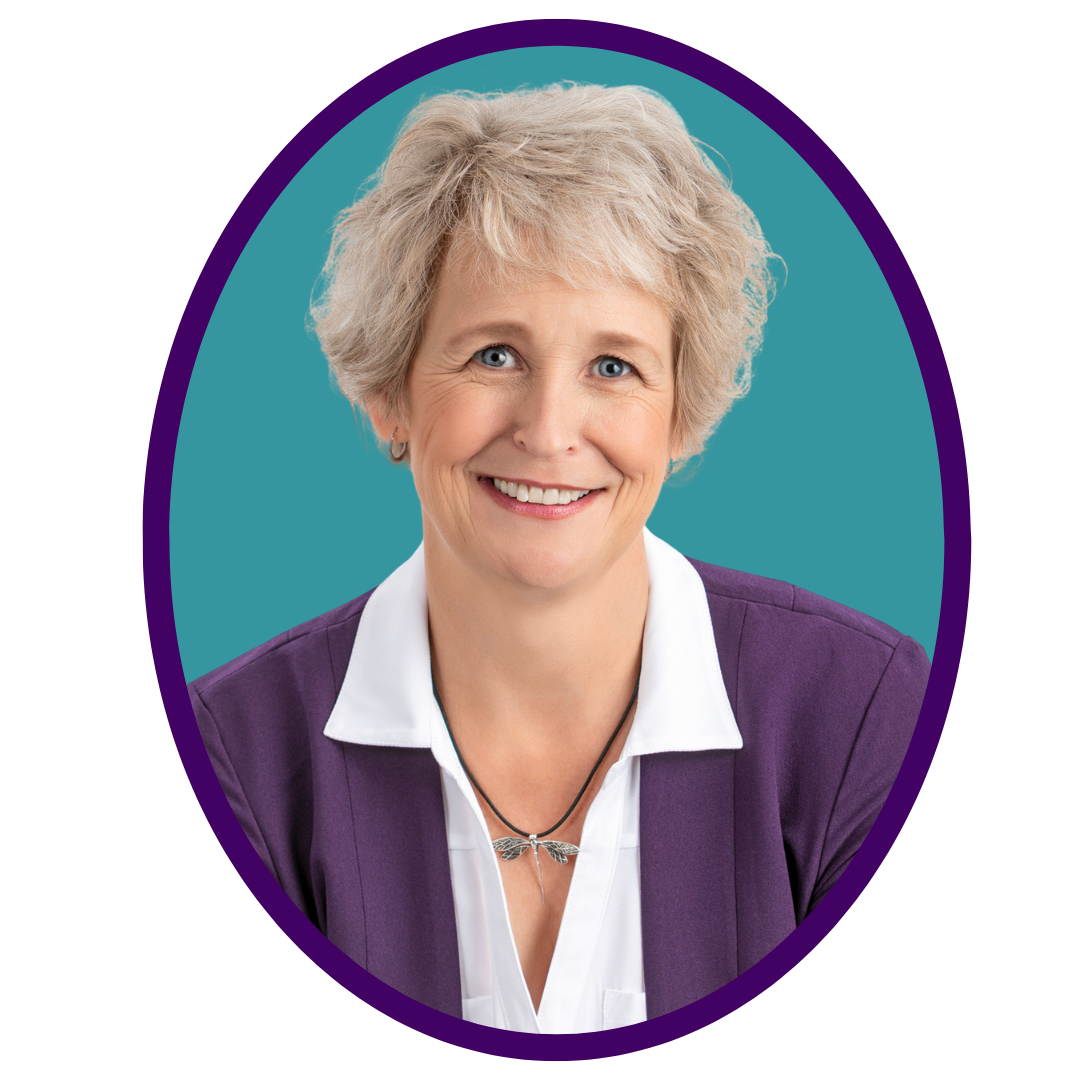|
The It’s gonna be a quickie today as I am in Knowlton, Quebec visiting my parents, you know, the people most responsible for all of my emotional traumas. Geez, does that sound harsh, or what? Of course they are! That unit was the single greatest influence in my young life. They are also the people who taught me to laugh, who gave me a work ethic, and who introduced me to some of the greatest gifts in my life. Most importantly, I wouldn’t be who I am without them. Damn, I wouldn’t be without them. Now, I could tell you that I didn’t choose to be here - that was all on them (and a drunken Christmas season in 1966) - but there are some who will tell you that a soul chooses her family. Maybe I am ultimately responsible for the family I chose. I like the idea of that; I am here with them to teach and to learn. No, I guess that’s not 100% accurate, is it? I don’t get to decide if someone else learns. That’s all on them. They have to be open to it. <breathes> That’s a tough one for me. I am feeling a million times better than I was six-ish years ago. Why can’t I bring my loved ones with me? Or, rather, why can’t I convince them to join me on this journey? Too many of my people don’t get the five-by-five rule (thanks to Faith on Buffy the Vampire Slayer for introducing me to the concept), which says, if it’s not going to matter in five years, don’t spend more than five minutes worrying about it. The resulting emotions vacillate between frustration and anger. And over what? A traffic snag or a blown football play? In the preseason? Nope, I’m going to save my... uh... stuffs for things that matter. My BP is not going to go up over anything short of pain being inflicted on my fellow human beings or our planet. With regards to other stressors in my life, I choose to remember that there’s nothing to worry about; if it’s something I have no control over, then there’s no sense worrying, and if it’s something I do have control over, then I, uh, have control over it. The big stuff - the global environment, the global economy, the fate of my own future generations - I will fight for them in the ways that I can. That’s my raison d’être. I want to... Leave the world better. I have a question for you. If you could choose to accept that everyone else’s intentions are pure, that they’re doing the best they can with the information and capacity that they have in a given moment, how would your life change? Please let me know in the comments. What do you want your legacy to be? AuthorBased out of Calgary, Canada, Christie Morden is a Mental Health Coach specializing in midlife transformation. When depression nearly took her life at age 45, she finally decided she was done living with the pain of her past. She believes hypnotherapy was the missing puzzle piece and built her practice around it. She branded her style of coaching Quicknotherapy, a signature blend of traditional client-centered coaching and hypnotherapy techniques which have been found to be both more effective and more efficient than traditional psychotherapies. Christie's clients can experience dramatic results in a single session, and many issues resolve within three.
0 Comments
Have you ever noticed that people like to pigeonhole you? I guess it makes sense; we are most comfortable with what is familiar. No, maybe that’s not strong enough: We are terrified of the unfamiliar.
Pretty innocuous examples, right? But they point to a pattern. I spent three nights in Hong Kong. I am not proud to admit that the scents of the city – of street food cooking – literally had me gagging. The first night we ate in the hotel restaurant, the second day we had pizza for lunch, and the last night we went to Ruby Tuesdays. And that from a woman who embraces new experiences more than most. I couldn’t get past my fear of “what if?” Side bar: Did you know that the fear of throwing up in public is a real thing? Emetophobia. It is actually at the root of many people’s anxiety. Wow, I really never know where these blogs will end up! I just ramble. Admittedly, throwing up in public would be a new experience, but I’m fairly certain that wasn’t what I intended when I spoke of being scared of the unfamiliar. Maybe there is a way to tie these together… Vomiting publicly is only one way that we can embarrass or humiliate ourselves, right? I have fallen up the stairs in front of the coordinators’ morning coffee meeting at one of the seniors’ residences I was working out of. Twice. I once shouted, “Crap, she’s back!” while friends and I were trying to stealthily escape a spoken word event. I literally fell on my face at a high school dance and took three stitches to the chin. I’m sure you’ve had similar experiences – you’ve pushed on a door that says “Pull,” you’ve tripped over a crack in the sidewalk, or you’ve tried to make chocolate swirl ice cream at the Ponderosa only to realise that you were loosening the bolts, which caused ice cream to pour out from behind the front plate… Hey, these things happen. It’s the meaning that we give to these events that matters.
Events which should be viewed with humour – at least after the fact – can go to a whole new level when we internalise. Compare:
We all do clumsy, rude, dumb, and embarrassing things. I would suggest that if you claim not to, you are in a huge battle with perfectionism and its dear friend, anxiety. That combination probably keeps you really set in your ways. You only know one route to get to any destination and lose your mind when there’s a detour. You don’t try new foods because, “Hey, I like vanilla,” then complain, “I’m sure that was French vanilla. I wanted regular.” You can travel but will usually stay in American chain hotels, preferably ones that include an American breakfast. And that’s fine, and it’s safe, and we are hardwired to do just that. Again, those examples are pretty benign, but imagine the consequences for those people. Bear in mind that emotional pain – of which shame is the strongest – hurts as much or more than physical pain. A woman hits a detour. Her level of anxiety starts to climb. She has internalised a belief that she has a terrible sense of direction. She thinks she’s running parallel to her planned route, but somehow the streets diverged, and she finds herself lost and beside herself by this point. Thoughts of, “You’re so stupid!” and “Why is everything always so difficult?” run through her head, informing and perpetuating her views of herself and the world. You know she’s probably had that running patter in her mind since she was a child. It makes her less likely to ask for the help she needs, which just escalates her spiral. Vanilla ice cream. I’m imagining a little boy faced with too many choices in his young life, maybe just standing in the ice cream parlour, eyes wide. Thirty-one flavours!! I envision his parents getting annoyed. “Just pick one!” So, he points to some random container and walks back home, letting a lot of his ice cream drip down his little hand and spitting coconut shards on the ground as his parents shame-lecture him about waste. Speaking of waste, what if a Canadian traveller is faced with an unfamiliar toilet? That can lead to high-magnitude stress. Many Southeast Asian countries use water rather than toilet paper for cleansing. You often need a coin to open the door of a public toilet in the UK. The French toilet is often a hole in the floor. Not knowing how to use the bathroom can lead to more thoughts of shame, maybe even dredge up the person’s own experience of potty training. Vomit. Potty training. This could be my best blog ever! I believe my point was best penned by Thich Nhat Hanh. “People have a hard time letting go of their suffering. Out of a fear of the unknown, they prefer suffering that is familiar.” How heart-wrenching is that? People would rather suffer than change; that’s how terrifying the unfamiliar is. Because we don’t want to embarrass ourselves. Because of those shaming voices in our heads. The great news is that going outside of your comfort zone is a muscle that can be developed simply by doing it. By fighting our primitive urge to stay safe, we open ourselves up to not just new behaviours and interests. We also rewire our thought patterns.
Don’t let your kids watch you suffer and do nothing about it. Resilience is the path away from shame. What do you want your legacy to be? Here’s me, feeling all cocky, like I’ve mastered this whole shame thing, right? I got complacent. I started believing that I had risen above it all, and then yesterday hit. Being on my way home from work first, I offered to pick up the cat food that we needed. I got to Petland, made a beeline for the back of the store, picked out the bag, took a second mortgage out on the house to be able to afford it, and headed home. Tra la la. It was the wrong food. They hadn’t been eating that one for a few bags now. If the language I used was foul, you should have seen my temper! I grew irate in a way I haven’t in months, at least. While my wife was off replacing the bag, I dove in deep trying to understand my reaction. What I realised was that I am OK when I do something stupid as long as I’m the only one impacted, but when it affects someone else, it would seem, I lose my... waste. The shaming voices come back with a vengeance. “You’re such an idiot. Couldn’t even manage the simplest task. What is the matter with you?” Yesterday was a humbling reminder that the work is never finished. The changes I have been making in the direction of my business have been confusing to quite a few people. “But it’s still about the dying, right?” To that I say a resounding, “Yes, but not necessarily at the end of life.” Oddly, that doesn’t seem to allay their confusion. “Could you explain this legacy coaching thing to me again? Like, who do you work with?” *deep breath* “I work with people whose legacy is at the forefront of their minds – couples who’re trying to get pregnant, new grandparents, and the dying, mostly. We focus on what sort of non-material legacy they want to leave their loved ones. And healing the things they don’t want to pass down.” Here’s what it comes down to in a nutshell: I help people make peace with their lives, their relationships, and themselves, so they can enjoy the rest of their existence in peace, however many years that happens to be. When a person is dying, it is simply their last best time to accomplish this. Leave the world better. In case I haven’t made it clear, I have been on quite the personal journey these past six years. Shameless self-promotion: Don’t ever trust a coach who hasn’t done her own work. I have explored my own limiting beliefs and strive every day to rise above them. Many I have replaced with healthier ones, but there are some that have been part of me for so long that they’re harder to overcome. One of my most tenacious and pervasive is the belief that I need to be perfect to be loved. Huh. I was going to change that to “accepted,” but couldn’t bring myself to type it. Damn you, Brené Brown! I am listening to her Dare to Lead this week and heard her voice in my ear reminding me not to sanitise. If you’re lonely, don’t say you’re disconnected. If you’re drowning, don’t tell me that you’re swamped. If you’re overwrought, don’t say that you’re uncomfortable. It’s inauthentic of you and totally unfair to the person with whom you’re sharing it. They can’t know how to help you unless you’re forthcoming. They may not even understand that you need help. “Clear is kind. Unclear is unkind,” right Brené? Where was I? Ah, yes, my perfectionism. One little word means so much.
Why am I sharing this with you? No, seriously. Why? Geez, it’s like going into a room, forgetting why you’re there. Being middle-aged is fun! My journey, right. Six years ago, I gave up my internal perfectionism. I embraced my own imperfection, and it was a game-changer. Literally. I started to worry less about my golf game and to enjoy it more. On other fronts, it allowed me to have a more open-minded flexibility. It is the reason that I got into coaching, rather than choosing to continue to massage seniors for the rest of my life. Don’t get me wrong; I love them, but, twenty-two years in (ten working out of a chiropractic clinic) the work has become too physically demanding. Fear of failure could have kept me stubbornly doing it, but I took the leap and its associated emotional risks. This new me brought with it a totem of sorts, a spirit animal, an alter-ego: The Dragonfly, class Insecta, order Odonata, infraorder Anisoptera. What does she symbolise? Thank you for asking!
“Dragonflies are reminders that we are light, and we can reflect light in powerful ways if we choose to do so.” ― Robyn Nola What’s not to love? One last thing Anisoptera brought me was the ability to ride the winds of change, and this I do gratefully and willingly. Where once fear held me back, I now trust myself and my direction. It’s not all dragonflies, puppies, and rainbows, though. What I’ve been sharing with you is how I have gotten a handle on my internal perfectionism, my newfound willingness to see myself as imperfect. There’s still the matter of my external need to appear perfect, or, at least, like I’ve kinda got my *stuff* together. If I’m putting the effort in for someone else, I hate to disappoint them. I’ll eat pretty much anything, but what I serve others cannot be subpar. (Don’t get me started on the near-disintegrated turkey I served one Christmas!) I oftentimes find myself apologising for what I’m serving. The idea of disappointing others leads back to fear of judgment. And feeling not good enough. And anxiety. And the inability to fully enjoy a visit from family. Or hosting a dinner party. Now hear this!! Future guests, please know that my house usually looks significantly more, uh, lived-in than when you’re here. I saw something go by on Facebook that resonated. “Laundry – Wash cycle, forty-five minutes. Dry, forty-five minutes. Put away, seven to ten business days.” In a business context, perfectionism can be stifling. I can only speak for myself when I say that it delays progress. Rereading blog posts, taking yet another course so I can be a perfect coach for my clients, writing and rewriting hypnosis scripts… all of that pushes back what I am truly called to do, serve families on their path to healing. When I wrap my head around the ramifications of that, it seems selfish; by not making my services widely known, I’m withholding them from people who could be helped. People I could help. And why? Because I stammered doing a video ad for Facebook? No more. I occasionally stammer. I could sometimes write a more cogent blog post or a more powerful hypnosis script. I don’t strive for perfection, but I give a hundred percent, I give myself permission to evolve and grow as a coach and as a human being, and I’m authentically me. I’m good with that. What do you want your legacy to be? Last weekend I was at the movies. The Lion King, and saw a young family getting buttery-flavour topping for their popcorn. They had in tow a young girl of three or four. She was dressed in a pretty pink dress and getting rather rambunctious, when I heard her exasperated father ask, “What is the matter with you?” My heart sank. I don’t know what frustrations his day had already held or what stressors were ruling his life, but I will bet you dollars to doughnuts that his younger self had been asked the same question. It doesn’t just appear out of nowhere. And in that moment, popcorn crunching under my feet, I just wanted to reach out to that father and dig deep inside to find the moment when those words had harmed his young self. When I first found myself drawn into the world of end-of-life care, I was unsure of my niche. I will be approaching our local chapter of No One Dies Alone (again) in the hopes of volunteering to sit vigil, but that isn’t where I want my work to take me. No matter where I turned, my calling was toward relationship repair. Probably why I called myself an end-of-life coach. When all is said and done, all coaching is relationship coaching. I came to believe that the reason people grew fearful or angry toward end-of-life was because they were living with unresolved relationships. But aren’t we all? Isn’t there something, some “What is the matter with you?” comment that shaped your life? What if you could repair it? What if you could heal the wounded child inside of you who was on its receiving end? What if you could learn to believe that you are perfect just the way you are? Now imagine the impact that could have on your family line. Teach your children that you’re not judging, you’re guiding them. Teach them that it’s OK to cry and be vulnerable. Teach them that no matter how angry you might get at or how much you don’t love something they’ve done, you still love them. Imagine teaching them by example that it’s OK not to be perfect, and that, when you’re not, taking responsibility for hurting someone else is the right thing to do. Imagine teaching them to love themselves unconditionally. So, yeah, that’s why I transitioned away from my exclusive focus on end-of-life. I am a legacy coach. I am here to help the people of this world heal, one family at a time. The cycle of familial emotional trauma can be broken. Goodbye, Violet Light. Hello, Shatter the Pattern Coaching. Riding the winds of change. My legacy. Leave the world better AuthorChristie Morden is Calgary's premier emotional legacy coach. Her unique and revolutionary blend of guided meditation and coaching techniques helps her clients achieve results fast and get the healing that they and their families need to shatter the pattern of generational emotional trauma. It’s not who you are; it’s how you are perceived. I first heard that succinctly expressed when I was in my early twenties, but I think it was something I had fought against my entire life. Talk about your limiting beliefs! It worked for Ted Bundy, though, didn’t it? “Jean-Jacques Rousseau (1712-78) argued that personal authenticity is diminished by the need for the esteem of others in societies characterized by hierarchy, inequality, and interdependence.” https://philosophynow.org/issues/92/The_Limits_of_Authenticity) That makes total sense, right? If you didn’t fit in in a hunter/gatherer society, you would be ostracised and, likely, not survive outside of the community. That’s an instinct that survives today, particularly in children, whose community is their family. The young child learns what she needs to do, how she needs to behave, through the encouragement or discouragement of her parents. The trouble is, what if the parents’ temporary needs supersede the child’s long-term ones? A government pamphlet from the early twentieth century recommended that "mothering meant holding the baby quietly, in tranquility-inducing positions" and that "the mother should stop immediately if her arms feel tired" because "the baby is never to inconvenience the adult." A baby older than six months "should be taught to sit silently in the crib; otherwise, he might need to be constantly watched and entertained by the mother, a serious waste of time." (See Blum, 2002.) I can picture the shock on the faces of those of you raising children today, but that was what the experts of the day espoused. We are an adaptive and evolving species; our understanding of child psychology – as with all sciences – is always up for review and revision. I hope most of us can agree that we don’t know everything. The way we were raised and the way we raised our children isn’t necessarily the best way. I had a client a million years ago who, before he was even a parent, said something which has stuck with me all this time. “Parents need to realise that they’re not raising a child; they’re raising an adult.” You see, everything we do should prepare them to be independent from us. An authoritarian parenting style creates adults who fear and kowtow to people in power. (Enter Donald Trump.) They tend to be socially awkward, feel inferior to their peers, and to not be particularly self-reliant. They don’t make waves, are quiet and well-behaved. As Laurel Thatcher Ulrich wrote, "Well-behaved women seldom make history." Neither do the men. Now, for all of you grandparents who are shaking your heads, saying, “Kids today are spoiled!” you might be right. When I was twenty/twenty-one years-old, I worked as a waitress – yep, we were still waiters and waitresses then – at a Jewish-owned restaurant in Montreal. The clientele was also predominantly Jewish. I would often have three generations at a table. Grandma would be in her sixties or seventies, Mom in her forties, and Daughter would be maybe twenty-something. I could still read the tattoo on Grandma’s forearm. If Mom was lucky, she had been shipped off before the war. But Daughter? Her we used to call the Jewish-American princess. That’s probably politically incorrect these days, but I intend no offense. She – and I met plenty – was Jewish, and she was North American. And her family turned her into a princess by giving her everything she wanted. I get it. The older generations had gone through hell and vowed to protect their children from every bad thing the world would throw at them. But that permissive style of parenting made the younger generation spoiled, self-involved, and entitled. That’s ringing some bells, innit? They say it takes three generations to break a familial pattern. I think that’s what the parents of millennials have done, but the pendulum may have swung too far in some cases. I don’t want to sound like a middle-aged woman, but that’s what I am. I do go to the same movies as the millennials (because I am also a teenage boy at times) and, when I hold the door for them, the vast majority do not even reach out to grab it, just duck their little heads under my arm. Also, they’re so unused to looking people in the eye, when they do, instead of a hello or a nod, they look away as though they’ve been scalded. It’s called common courtesy, people! But… “Back to my Millennial. He raises his hand. I call on him.” “He says, ‘Everyone complains that we expect a trophy for just showing up. But who was buying those trophies for us as kids? We weren’t. You were. You created this generation, and now you are complaining.”’ https://institute.uschamber.com/is-respect-different-for-millennials/ It’s not about blame. It’s the pendulum. Just physics. I have begun to find that younger kids are more polite. I was putting up my Halloween decorations last year and a lovely young man of about eleven or twelve asked if I needed any help. And when I hold the door open for them at the movie theatre (I also like Pixar, she added, unapologetically) they usually say thank you. I always look to the parents saying something like, “You’ve got a very polite child there.” So, maybe the pendulum is settling into what the experts are now saying is the ideal parenting style, authoritative. It is a passive/authoritarian hybrid, a blend of telling the child what to do and letting them know why. "Because I said so/I'm your mother" has no place here. There are expectations placed on the child, while the parents are responsive to her needs. Limits and boundaries are set and enforced in a loving and respectful way. The children raised in such an environment:
What fine adults they'll make! Free to be and comfortable with themselves. What a circuitous way to get back to the point I initially intended to discuss: Authenticity. I wore many masks throughout my life, trying to be the best version of me for everyone else and in every situation. It was exhausting. And living inauthentically creates a horrible cognitive dissonance, a level of stress that can't be carried forever. Maybe to find ourselves we must give up our masks and discover the people we were meant to be, living our best lives outside of the expectations of others. We honour our loved ones better when we show them our true selves, when we say, "Here I am in all my imperfection. I trust you enough to show you who I am." ______________________________ You might wonder what business I have discussing good parenting, having no children of my own. To my mind, a great coach gives you fresh perspective, allows you to look at your situation more objectively. That's what I'm offering, and it's even easier for me because I have no skin in the game. There's none of that pesky defensiveness on my part where I champion my own parenting style, all the while worrying that I've somehow broken my kids. Nope, I will not lay any baggage at your feet. :) I do have nieces and nephews whom I adore, and I want them to always know that they're safe with me. What do you want your legacy to be? I had a great perspective lesson this week. It was living in the 'gap' versus living in the 'gain'. The easiest way to explain is through example: A man comes home with flowers for his wife. She receives them, saying, ""Didn't they have any roses?" Instead of appreciating his loving gesture, the woman focuses on what's missing, the gap. The pain of this situation is twofold, the woman who lives her life in disappointment (for what we focus on expands), and the man who will likely never bother to bring her flowers again. Sadly, 75% of people live in the gap. I choose to live in the gain, people! Who's with me? Leave the world better. AuthorChristie Morden is Calgary's premier emotional legacy coach. Her unique and revolutionary blend of guided meditation and coaching techniques helps her clients achieve results fast and get the healing that they and their families need to shatter the pattern of generational emotional trauma. |
Christie MordenMental Health Coach Archives
March 2022
|




